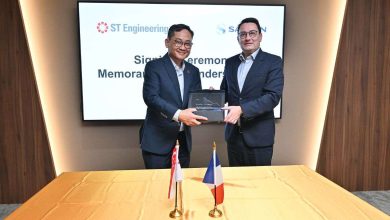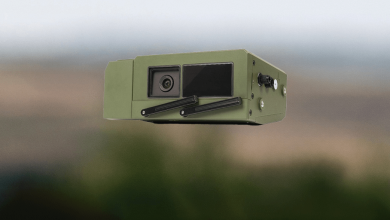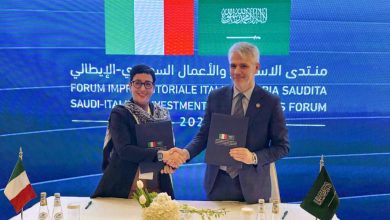
“Leonardo and IIT: Pioneering Innovative Security Solutions for Space and Emergency Services”
The new Leonardo-IIT (Istituto Italiano di Tecnologia) collaborative research labs are inaugurated in Genoa as part of Leonardo’s Corporate research initiative, focusing on technologies pivotal for the nation’s security.
The aim of these collaborative labs is to advance three essential sectors crucial for the future evolution of security applications in the realms of space and emergency response: high-performance computing (supercomputing), industrial robotic systems integrated with artificial intelligence, and the adaptation of these systems for unruly environments.
The agreement anticipates the recruitment of approximately 30 researchers, who will engage in all three domains, with an annual funding reaching one million euros for Leonardo and IIT.
The Leonardo-IIT Joint Labs will serve as the national hub (and potentially international) for the advancement of the digital transformation of industrial processes and technologies, facilitating a deeper exploration of the potential of digital modeling and virtual realms. Robotics, monitoring, control, and predictive analytics represent the forefront of digitalization that the Leonardo-IIT Joint Labs are concentrating on. Digital design can accelerate the development phase by 80%, lower expenditures, and, through optimized consumption, can trim costs by up to 25%.
High-performance computing (supercomputing), a vital element of digitization, forms the cornerstone of Leonardo’s strategy for integrated innovation. This laboratory, renowned internationally, arises from the shared expertise in HPC (High Performance Computing) between IIT and Leonardo, made feasible via Leonardo’s Davinci-1 supercomputer and IIT’s Franklin supercomputer. This will invigorate the entire HPC community within the country and bolster the national digitization agenda.
The joint lab will significantly enhance technological capabilities in high-performance computing, leveraging cutting-edge technologies and embracing quantum computing. These systems facilitate the processing of an extensive number of operations in real time, tasks that a conventional computer would take days, months, or even years to accomplish. New numerical models and calculation algorithms will be developed to enhance technological independence and create ad hoc proprietary applications, for instance, relating to fluid dynamics calculations of aircraft wing profiles. The simulation of intricate physical phenomena, such as airflow turbulence around airfoils, necessitates immense computing power, which enables substantial acceleration of design and testing processes.
In the medium term, innovative algorithms for sustainable computing, coupled with the implementation of an eco-friendly approach aimed at diminishing energy consumption and the environmental footprint of the entire sector, will be devised. The European aspiration is to achieve carbon neutrality for the entire cloud and data center industry by 2030 (currently, 5% of worldwide energy production is consumed by data centers, a figure that is continually rising). This objective is attainable through the refinement of numerical calculation codes.
Within this framework, the Joint Lab focused on HPC is investigating additional green solutions to be applied to supercomputing machines. This encompasses the automated shutdown of inactive circuits, energy sourcing from alternative outlets, or highly efficient cooling mechanisms derived from natural resources (such as water from rivers or aquifers or utilizing water evaporation). These solutions yield energy savings of up to 30%.
The progression of robotic systems integrated with artificial intelligence for industrial purposes signifies an additional collaborative avenue. By employing hybrid solutions for interactions between humans and robotic systems, the digitalization of industrial production zones can be established, leading to safer environments, programmed and predictive logistics management, improved quality in production and products, and augmented after-sales support through advanced monitoring systems for routine maintenance and predictive alert signals.
Multi-robotic teams will also be researched to autonomously handle tasks involving goods lifting, navigation, and storage, alongside technologies for remote control of robotic components, enabling human operators to manage them from a distance.
Another area of exploration within the Leonardo-IIT Joint Lab involves the research and advancement of robotic technologies intended for non-industrial applications, suitable for functioning in unstructured environments. These scenarios necessitate the adaptability of robotic systems in unpredictable circumstances, under challenging environmental conditions, allowing them to operate autonomously. The applications primarily focus on space – utilizing robotic systems on planets and satellites where instruments are subjected to radiation, extreme temperature variances, and particularly difficult mobility scenarios – and emergency responses in the aftermath of natural calamities.







